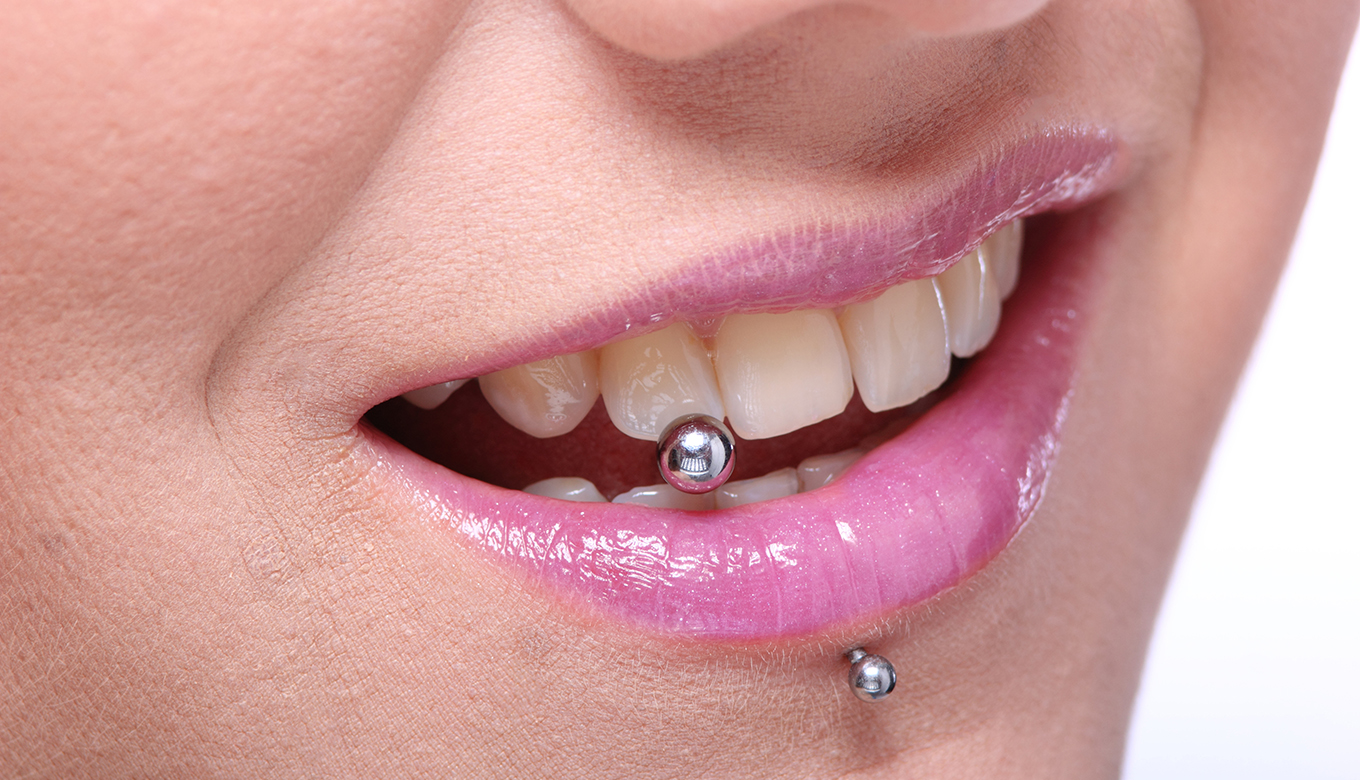What are the dangers of oral piercings?

Oral piercings have started to become a trend these days amongst the youngsters across India. In this article, let us talk about oral piercings and the dangers these pose to the health of teeth and gums.
What are oral piercings?
Oral piercings are holes present in the tongue, lip or cheeks that are artificially made via the form of a tool to insert jewellery or other substances. Whilst piercings are commonly done to showcase style, there are several cons that are associated with an oral piercing. The dangers that are associated with an oral piercing are:
- The presence of a piercing can lead to proliferation of bacteria.
- A piercing can make it harder for you to breathe in some cases and may disrupt normal breathing patterns.
- In addition to breathing issues, piercings make it harder for you to chew, speak or swallow food materials.
- Piercings make it harder for your doctor to scan your mouth or tongue.
- In rare cases, piercings may breakup in mouth causing you to involuntarily choke.
- Oral piercings can lead to other serious gum issues. In addition to gum disease, there is also a risk of contracting hepatitis B or hepatitis C.
- Oral piercings may result in bleeding or an allergic reaction in the mouth.
- Oral piercings may cause damage to gums, teeth and other fillings.
- Piercings may also result in involuntary drooling.
Considering all these reasons, this is why dentists recommend you do not have oral piercings as it may cause harm to your gums and teeth over the long run.
If you already have a piercing done, here is what you can do:
- Contact your dentist if you show any sign of infection.
- Keep your oral health in good condition by brushing and flossing regularly.
- Protect your mouth with a guard when playing sports or undertaking any outdoor activity.
- Remove the jewellery before undertaking outdoor activity.
- Keep the piercing clean to avoid infection in the region.
If you are not sure whether having a piercing is a good idea, then we would recommend you to consult a dentist who would be better able to advise you on the next steps considering your personal circumstances.
Leave a Reply